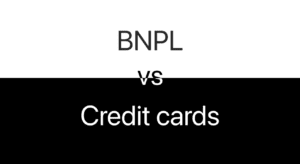Strategies for Paying Off Debt and Achieving Financial Freedom
Paying off debt requires discipline, commitment, and a strategic approach.

Debt can hinder financial freedom. Whether it’s credit card debt, student loans, or a mortgage, owing money can weigh you down. However, with smart strategies and focus, you can take control of your finances and work towards becoming debt-free while securing your financial future. In this article, we will explore effective strategies to help you pay off debt and achieve long-term financial stability.

1- Understand Your Debts:
Start by listing all your debts, including balances, interest rates, and minimum payments. Prioritize your debts based on interest rates or other preferences. This will help you focus and create a plan.
2 – Set Realistic Goals:
Set achievable goals for debt repayment. Determine how much you can allocate each month while covering essential expenses. Consider using the snowball or avalanche method to tackle debts systematically. The snowball method involves paying off the smallest debt first, while the avalanche method focuses on the highest-interest debt. Choose the method that suits you best.
3 – Create a Budget and Track Expenses:
A well-planned budget is vital. Identify areas where you can cut expenses and allocate more towards debt payments. Track your spending habits and avoid unnecessary purchases. Use budgeting apps or spreadsheets to monitor progress and stay accountable.
4 – Increase Your Income:
Finding ways to earn extra income can speed up debt repayment. Consider part-time jobs, freelancing, or starting a side business. Apply the additional income directly to debt payments.
5 – Negotiate Lower Interest Rates:
Contact your creditors to negotiate lower interest rates. Explain your situation and show your commitment to repayment. Lower rates can reduce monthly payments and save you money over time.
6 – Consolidate or Refinance:
Consolidating multiple debts into a single loan with a lower interest rate can simplify repayment. Explore debt consolidation loans or balance transfers. Refinancing a mortgage or student loans at a lower rate can also save money and accelerate debt payoff.
7 – Seek Professional Advice:
If you’re overwhelmed or struggling to create a repayment plan, consult a financial advisor or credit counseling agency. They can offer personalized guidance and help you explore debt relief options.
Conclusion:
Paying off debt requires discipline, commitment, and a strategic approach. By organizing your debts, setting realistic goals, budgeting wisely, increasing income, negotiating rates, and seeking professional advice, you can take charge of your financial situation and work towards long-term financial freedom. Remember, the journey may not be easy, but with determination and the right strategies, you can build a brighter and more secure financial future.








